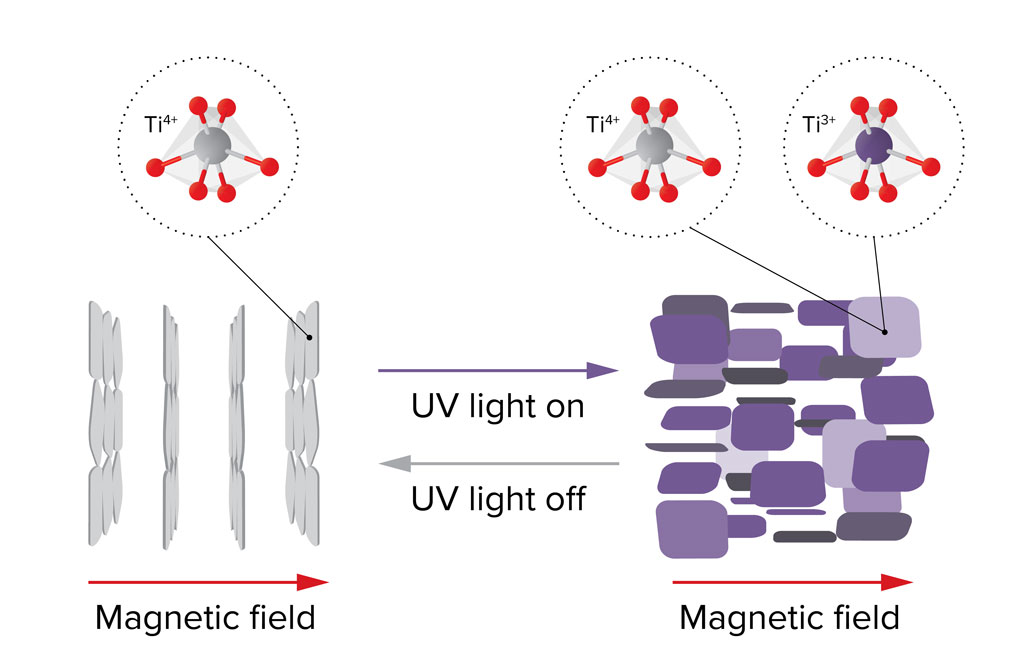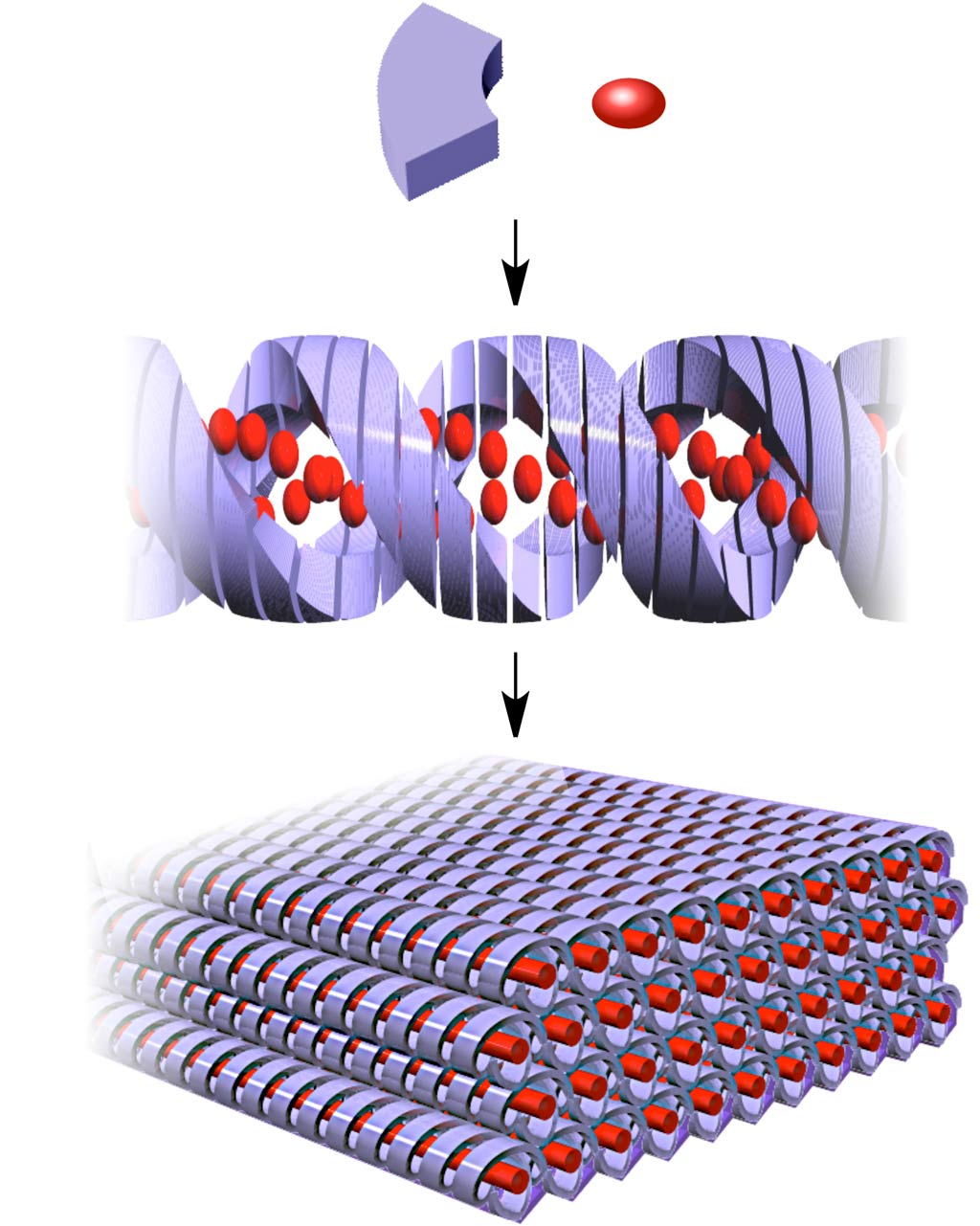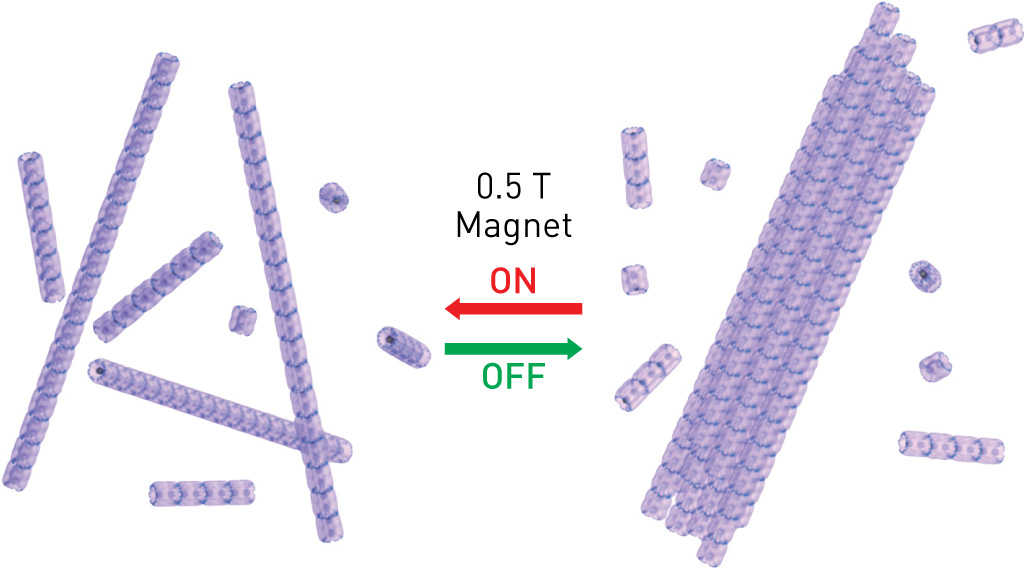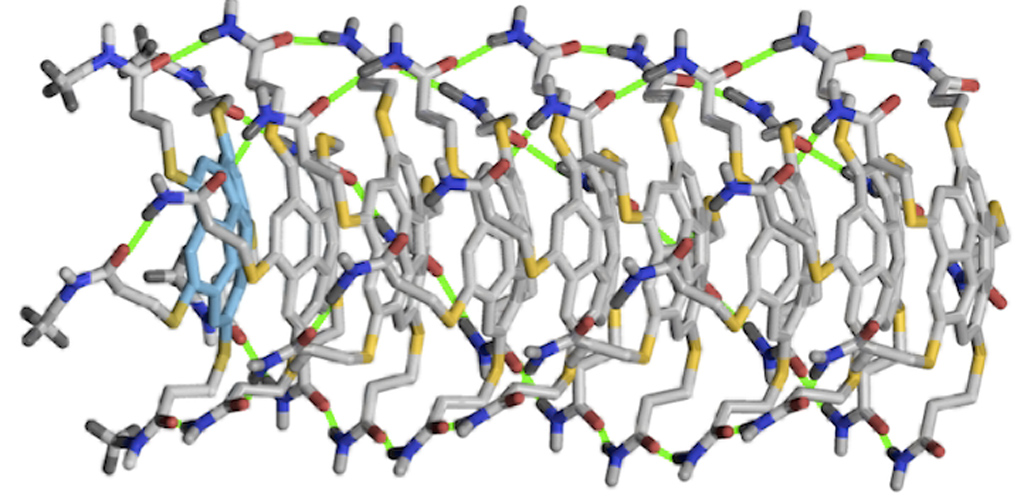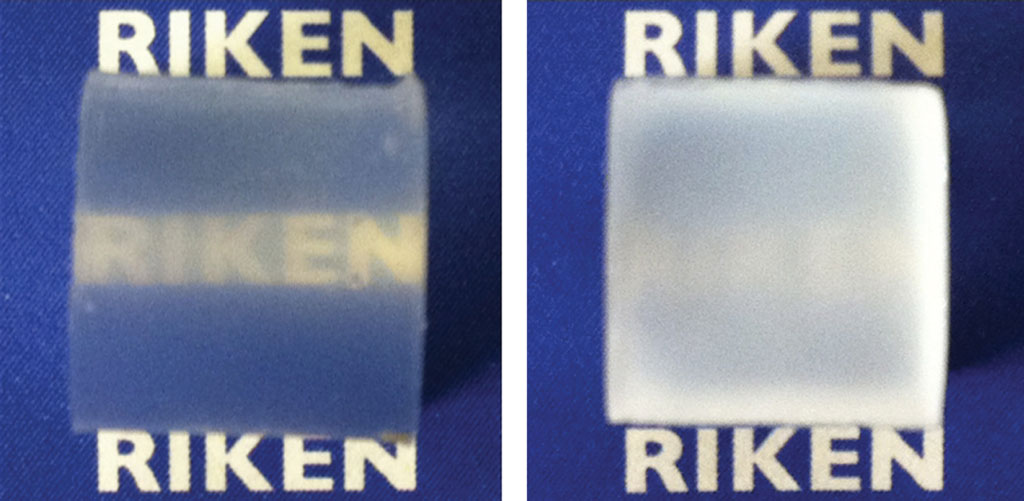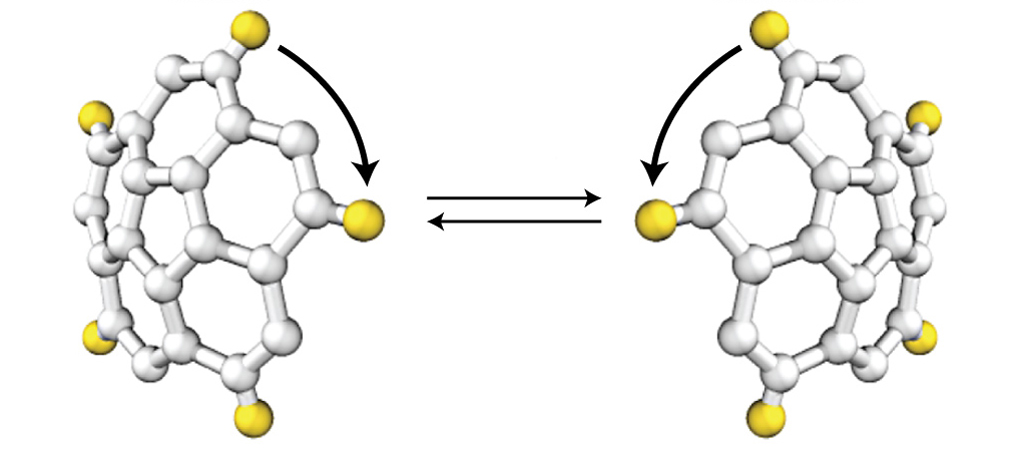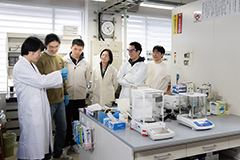
With world's focus on environment and energy issues, our group aims to establish a novel principle of material sciences addressing these problems, through the development of unprecedented functional materials with precisely controlled structure and properties at molecular to nanoscale levels. The main research subjects include (1) the development of novel organic catalysts consisting only of ubiquitous elements for high efficient water photolysis, (2) the development of the solution-processable organic ferroelectric materials for the application to memory devices, and (3) the development of precise supramolecular polymerizations.
Fluorinated Nanotubes That Allow Water to Pass Through at Very High Speed but Not Salt
Desalination of seawater is an essential issue for realizing a sustainable society, and various water treatment membranes have been developed. The development of technology to desalinate seawater at high speed is one of the Sustainable Development Goals (SDGs) adopted at the UN Summit in 2015, but to solve the global shortage of drinking water, it is necessary to dramatically increase the capacity of the water treatment membranes currently in use. In basic research to increase the capacity of water treatment membranes, “aquaporins” have been the focus of attention. Inspired by the structure and performance of aquaporins, various nanotubes that mimic aquaporins, such as carbon nanotubes, have been reported, but nothing has been reported that significantly exceeds the performance of aquaporins.
In this study, the group obtained fluorinated nanotubes whose inner walls are densely covered with fluorine like Teflon by layering macrocyclic compounds with fluorine atoms densely bonded to the inner surface in a row by a method called supramolecular polymerization. Evaluation of the water permeability and salt removal ability of these nanotubes revealed that they are 4,500 times more permeable to water than aquaporins, but impervious to salt.

Fluorinated Nanotubes for Ultra-Fast Water Permeation and Their Inner Diameter Dependence
Chain-growth supramolecular polymerization
Over the last decade, significant progress in supramolecular polymerization has had a substantial impact on the design of functional soft materials. However, despite recent advances, most studies are still based on a preconceived notion that supramolecular polymerization follows a step-growth mechanism. We recently realized the first chain-growth supramolecular polymerization by designing metastable monomers with a shape-promoted intramolecular hydrogen-bonding network. The monomers are conformationally restricted from spontaneous polymerization at ambient temperatures but begin to polymerize with characteristics typical of a living mechanism upon mixing with tailored initiators. The chain growth occurs stereoselectively and therefore enables optical resolution of a racemic monomer. We believe that it may give rise to a paradigm shift in precision macromolecular engineering.

Schematic illustration of chain-growth supramolecular polymerization



